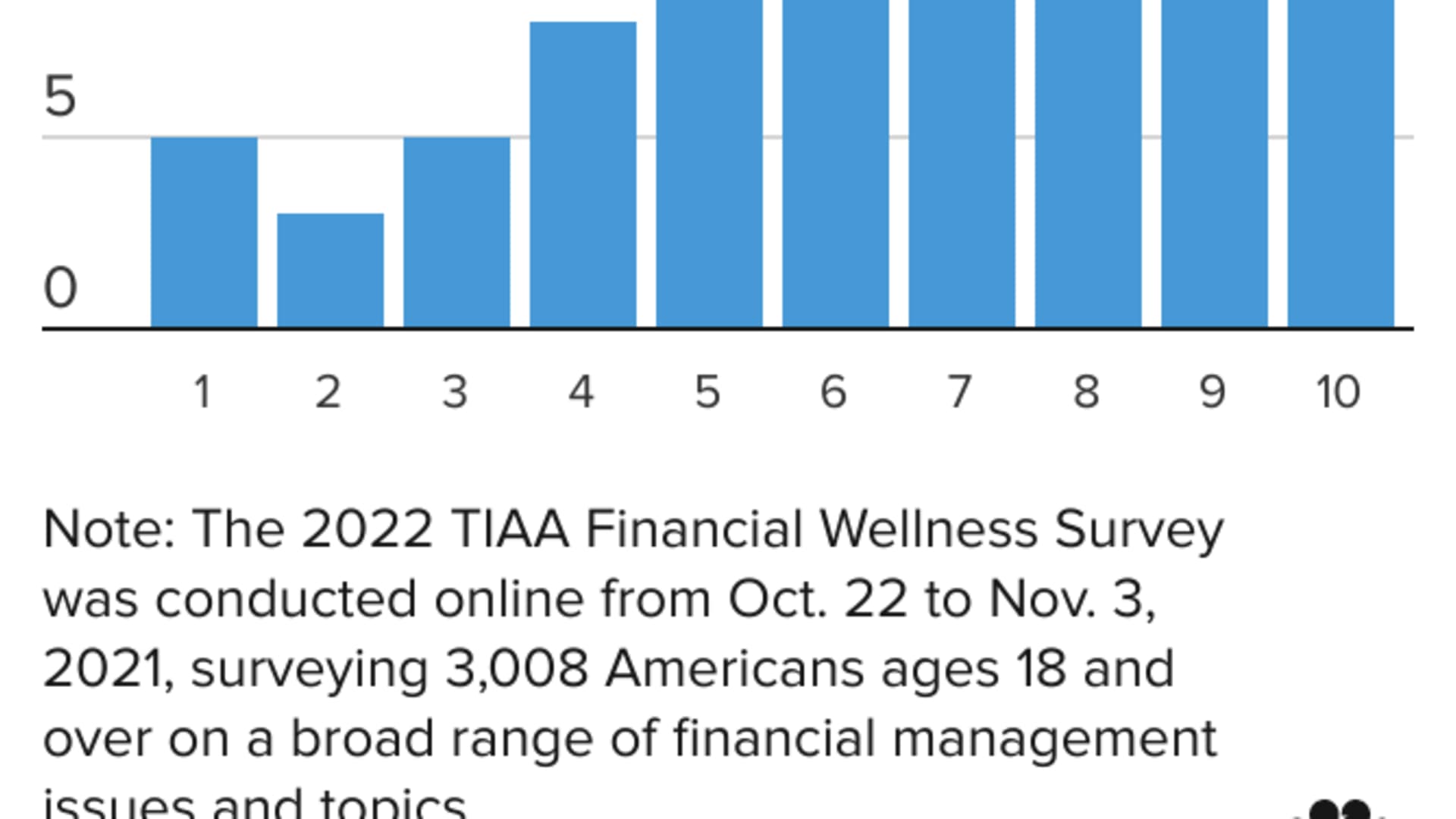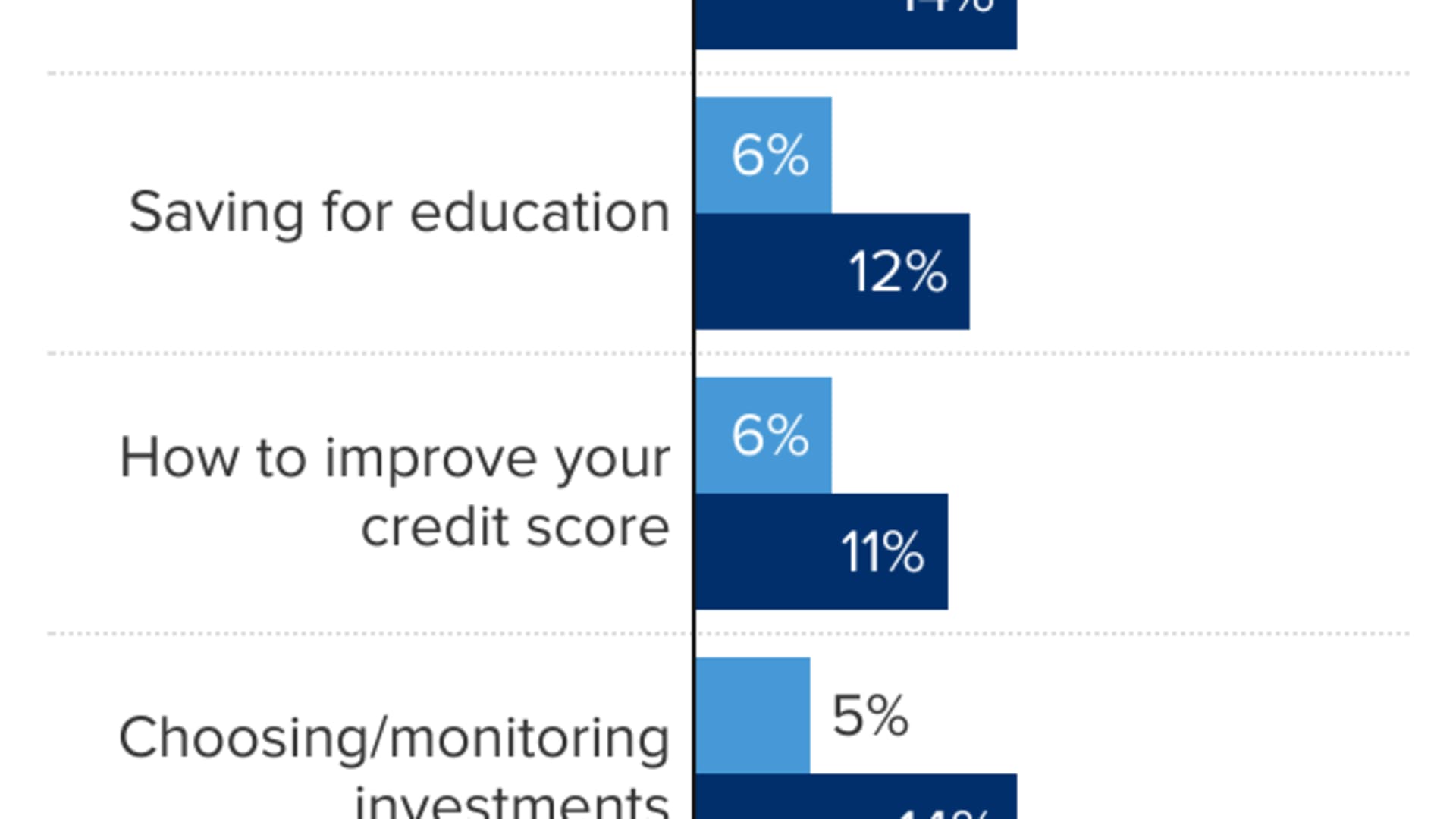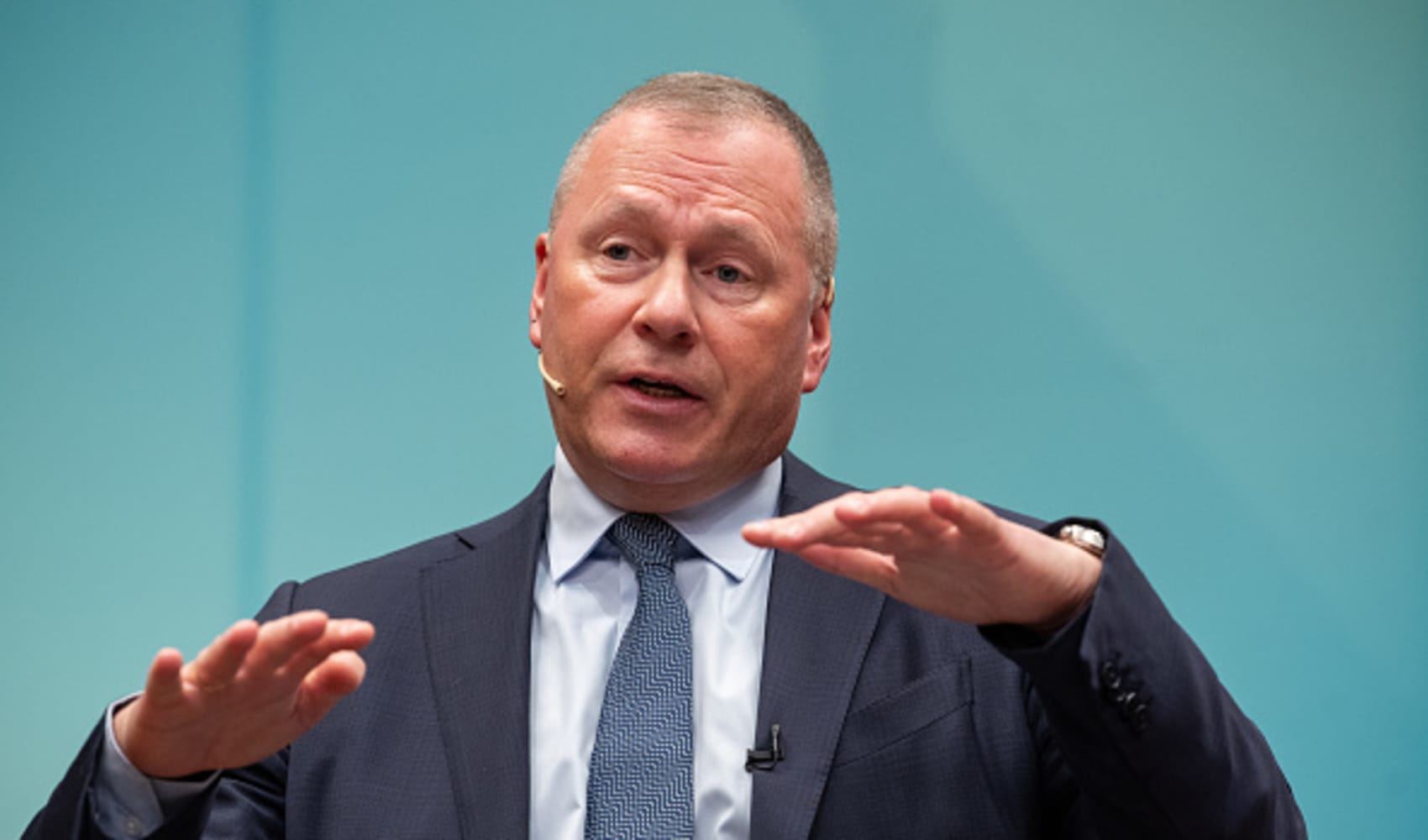
- A survey from TIAA finds that most people don't give themselves high marks when it comes to their financial wellness.
- While the Covid-19 pandemic has raised awareness about having money set aside in an emergency fund, many people have less than six months' worth of expenses in savings.
- Workplace benefits can go a long way toward helping people improve their financial health, the survey found. Yet not everyone takes advantage of them.
How high would you score yourself when it comes to feeling comfortable with your current financial situation?
If you're like most, you wouldn't give yourself very high marks, according to a survey from TIAA.
The financial services company set out to evaluate Americans' financial wellness – defined as having the means to take care of your family, not worrying about money or debt, or feeling prepared to handle unexpected life events.
Get a weekly recap of the latest San Francisco Bay Area housing news. Sign up for NBC Bay Area’s Housing Deconstructed newsletter.
Just 22% of respondents ages 18 and up gave themselves the highest scores — a 9 or 10 on a scale of 1 to 10.
More from Personal Finance:
What to know about your 2022 Medicare costs
How to appeal income-related Medicare charges
Key considerations if you want a Medigap policy
Meanwhile, 21% of respondents gave themselves the lowest scores of 1 to 4.
Money Report
Those who are most likely to feel confident in their financial circumstances include men and wealthy, older and retired individuals.
"Americans are telling us that their self-reported financial wellness is low, and they are experiencing a high degree of financial stress," said Snezana Zlatar, senior managing director and head of financial wellness advice and innovation at TIAA.
The online survey was conducted between Oct. 22 and Nov. 3 of last year. It included 3,008 respondents.

In the past two years, 37% of respondents said their financial wellness has increased, 42% said it stayed the same and 21% said it had decreased.
There are holes in people's preparation, even for those with the highest financial wellness scores, the survey found.
While 7 in 10 said they have a budget, just about 25% said they follow a detailed budget.
Just 38% have a written financial plan and only 16% of people had created one with a professional.

Most people — 78% — said they have an emergency fund. But less than half of respondents said that money would be enough to cover six months' of expenses.
Meanwhile, 6 in 10 said they have either some or a lot of stress when it comes to their finances.
Amid increasing competition for workplace talent, many people are looking to their employers to help shore up their financial confidence.
People who participated in employer-provided financial wellness programs were more likely to give themselves higher financial wellness scores, the survey found.
Yet only about half of workers report having access to financial wellness help through their employer.
When they are offered, those resources are often underutilized, the survey found.
Help with saving for retirement was the most common area addressed by employers. Yet while 31% of companies provide guidance in this area, just 20% of workers surveyed said they had taken advantage of those programs.






